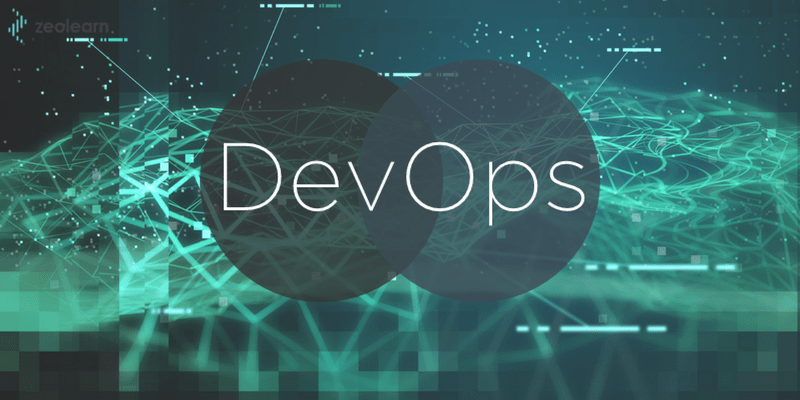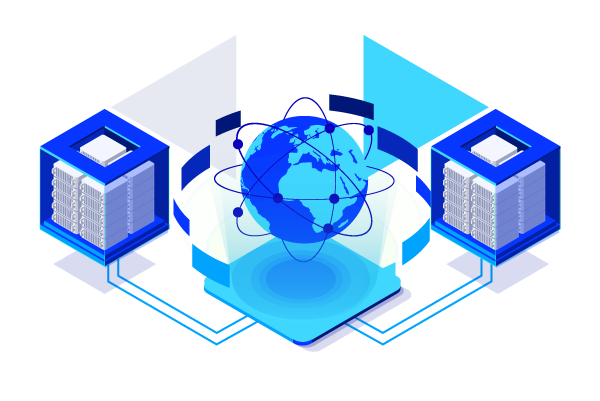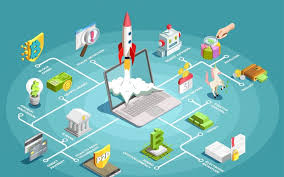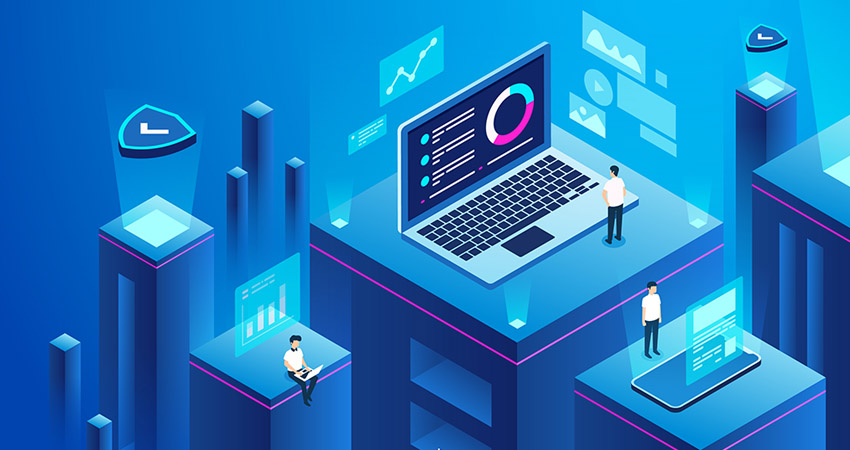Hello!
 The technology world is changing rapidly and most industry sectors embrace these changes in order to survive this turbulent time. AI, big data and ML are emerging technologies that can help enterprises prepare for the future and ensure their growth. Entrepreneurs must use technologies in a way that enables them to meet their long-term goals and withstand increasing competition.
The technology world is changing rapidly and most industry sectors embrace these changes in order to survive this turbulent time. AI, big data and ML are emerging technologies that can help enterprises prepare for the future and ensure their growth. Entrepreneurs must use technologies in a way that enables them to meet their long-term goals and withstand increasing competition.
The corporate world has adopted the term “Big Data”. Big Data projects are the future of business because they provide actionable insights using available data. There are always ways to improve their efficiency. Combining Big Data and DevOps technology is one of these. This article will explore the combination of Big Data and DevOps. Before we move on, let’s first understand these terms.
Big Data- Brief Introduction
Big data is large, complex data sets that are gathered from many sources. They are large and complex, so traditional data processing software is unable to handle them. These data sets can be used by entrepreneurs to solve business problems and make informed decisions. This is not possible with standard data.
 Data management is a broad term that includes obtaining, storing, and sharing corporate data. It also involves visualizing, transforming, and analyzing the data in order to deliver the desired business value. Automation can also help streamline processes.
Data management is a broad term that includes obtaining, storing, and sharing corporate data. It also involves visualizing, transforming, and analyzing the data in order to deliver the desired business value. Automation can also help streamline processes.
Big Data is a great tool to help enterprises deliver faster in this highly competitive market. DevOps has the right tools and practices to ensure that all of this is done efficiently.
Big Data Exciting Stats
- Experts predict that more than 463 gigabytes of data will have been created each day by 2025. This is equivalent to approximately 212,765,957 DVDs.
- The US economy can be hit by poor data quality which could cost USD 3.1 trillion per year.
- Big Data is expected to grow in value to USD 103 billion by 2027
- More than 97 percent say that they are investing in Big Data or AI
- 95 percent of companies claim that their inability understands and manage unstructured information holds them back.
Let’s now understand DevOps after we have discussed the importance of Big Data.
DevOps
 DevOps is a culture, methodology, and set of practices that facilitate and improve collaboration between the development and operations teams. It focuses primarily on streamlining and automating various processes throughout the development lifecycle of the project.
DevOps is a culture, methodology, and set of practices that facilitate and improve collaboration between the development and operations teams. It focuses primarily on streamlining and automating various processes throughout the development lifecycle of the project.
DevOps’ key pillars include shorter development cycles and faster deployments, rapid releases, parallel work by different experts, regular customer feedback, and increased customer satisfaction. This concept is gaining ground today because of its many benefits for businesses.
This greatly increases the speed, quality, and reliability of software development. The DevOps concept can be used in agile software development for most projects.
Why DevOps is Gaining Wide Acceptance
Development can be slowed down if there is not enough communication between the developers and the operations team. DevOps was created to address this problem by facilitating better collaboration between both teams. This results in quicker delivery. It allows for uninterrupted software delivery, allowing you to solve complex problems faster and more efficiently.
 DevOps is a common practice in organizations. It helps to improve user satisfaction, deliver high-quality products quickly, and increase overall productivity. DevOps helps to structure and strengthen the software delivery cycle. DevOps became more popular in 2016 when more companies switched to it.
DevOps is a common practice in organizations. It helps to improve user satisfaction, deliver high-quality products quickly, and increase overall productivity. DevOps helps to structure and strengthen the software delivery cycle. DevOps became more popular in 2016 when more companies switched to it.
Clients who have adopted advanced technologies such as Big Data and Cloud are demanding that companies deliver software-driven capabilities. According to a recent survey, 86% of companies believe continuous software delivery is essential for their business. DevOps is able to help ensure the timely delivery of high-quality software.
Statistics on DevOps
- DevOps’ market share is expected to grow by more than USD 6 billion by 2022
- DevOps has been adopted by 58 percent of companies. This means that they have seen a greater ROI and better performance.
- DevOps has been credited with improving customer satisfaction for 68 percent of companies
- 47% of companies have decreased the TTM (Time to Market), for software and service deployments
 DevOps has many benefits, including higher reliability, greater security, and increased scalability, as well as a faster development cycle and the ability to deliver quicker updates. It improves accountability and ownership across different teams. Two inherent elements of DevOps are Continuous Integration (CI) and Continuous Delivery (CD). Both are interrelated and can be used to increase productivity.
DevOps has many benefits, including higher reliability, greater security, and increased scalability, as well as a faster development cycle and the ability to deliver quicker updates. It improves accountability and ownership across different teams. Two inherent elements of DevOps are Continuous Integration (CI) and Continuous Delivery (CD). Both are interrelated and can be used to increase productivity.
- Continuous integration (CI) refers to the practice of merging code changes from multiple developers into a central repository multiple times per day.
- Continuous Delivery refers to software code that is continuously created, tested, and deployed to the production environment.
Why Big Data Requires DevOps
 Big Data projects can sometimes be difficult in terms of:
Big Data projects can sometimes be difficult in terms of:
- Handling the huge amount of data
- To keep up with the growing competition or to meet the demands of stakeholders, it is important to complete the task quickly
- Rapidly responding to changes
These challenges are not being met by DevOps’ traditional approach. Traditional teams and members worked in isolation. This creates silos and leads to a lack of collaboration. Data architects, analysts, and admins are all working on their own part of the job. This slows down delivery.
DevOps on the other hand, as per the pillars above, brings together all the participants at all stages of the software delivery process. This removes the barriers between roles and reduces silos to allow your Big Data team to be cross-functional. You can also experience an increase in operational efficiency which will result in a better-shared goal vision.
 DevOps tools are better at processing Big Data. DevOps tools for Big Data are almost identical to traditional DevOps environments. They include bug tracking, source code management, and deployment tools.
DevOps tools are better at processing Big Data. DevOps tools for Big Data are almost identical to traditional DevOps environments. They include bug tracking, source code management, and deployment tools.
Although the combination of Big Data/DevOps offers many benefits for enterprises, it also has its limitations. Software companies need to address these challenges while combining Big Data/DevOps.
Big Data and DevOps Combination
 Let’s say you finally decide to integrate DevOps and your Big Data project. You need to be able to identify the various challenges you may face during this process:
Let’s say you finally decide to integrate DevOps and your Big Data project. You need to be able to identify the various challenges you may face during this process:
- An organization’s operations team must have a good understanding of how to implement analytics models and in-depth knowledge about big data platforms. Analytics experts need to be able to work with other social engineers and must also know some advanced techniques.
- You will need additional resources and cloud computing technology if you want Big Data DevOps to run at its maximum efficiency. These services allow IT departments to focus more on business value than fixing problems related to hardware and operating systems.
- DevOps foster strong communication between developers, and operations professionals and is able to deal with certain communication issues. In production-grade environments, it is important to test the functionality of analytic models more quickly and with greater detail.
The Benefits of Big Data and DevOps Combined
DevOps does not include data analysis. Employing data specialists may be a benefit for companies who wish to implement DevOps with Big Data. They can use it to improve the efficiency and power of Big Data operations when combined with Dev Ops. The following benefits can be achieved by integrating Big Data and DevOps:
- Software Updates
 The software can be combined with data in general. If you wish to update your software, it is important that you know the types of data sources used by your application. You can learn more by talking to your data experts during the integration of DevOps or Big Data.
The software can be combined with data in general. If you wish to update your software, it is important that you know the types of data sources used by your application. You can learn more by talking to your data experts during the integration of DevOps or Big Data.
- Minimal Error Rates
Mostly, errors increase when companies have problems with data handling while writing and testing software. To save time and effort, it is important to avoid these errors in software development. Data-related errors can easily be corrected in an application that has strong collaboration between DevOps experts and Big Data specialists.
- Creates Relationships
Because of the vast verification of Big Data, non-data experts are unable to understand the software. Data experts can assist DevOps professionals in gaining knowledge about the types of data they must deal with and the challenges they face to achieve optimal outcomes. The collaboration between the Big Data team and the DevOps team has resulted in applications that perform in real life as well as in development environments.
- Streamlined Processing
 Data migration and translation can be time-consuming and could slow down your project. Combining DevOps with Big Data can streamline operations and improve data quality. Executives can now focus on more productive and creative tasks.
Data migration and translation can be time-consuming and could slow down your project. Combining DevOps with Big Data can streamline operations and improve data quality. Executives can now focus on more productive and creative tasks.
- Continuous Analytics
Combining Big Data and DevOps can provide continuous analytics, similar to continuous integration (CI). Combining Big Data and DevOps can simplify data analysis and automate them with algorithms.
- Correct Feedback
Once the Big Data software has been deployed to production, it is time to collect real-time and precise feedback to determine its strengths and weaknesses. This is where the combination of Big Data and DevOps can be very useful.
DevOps in Big Data: Critical Applications
Planning Effectively for Software Updates
 Developers need to understand the data types needed for developing enterprise-grade software or applications. It is important to know where and how the data will be used.
Developers need to understand the data types needed for developing enterprise-grade software or applications. It is important to know where and how the data will be used.
This information should be shared with your developer early so that they can work with a data expert.
Your data experts will be able to identify the correct code and guide your developer on the right track for designing or updating company software. Your system must be secure and run smoothly so that you can make updates.
Low Error Rate
Software developers are known to rigorously test their software before it is released. This causes data problems to continue to cause errors. This error rate increases with increasing complexity and data. This is where the integration of Big Data and DevOps comes in.
Both developers and data scientists can identify these errors early, which saves both time and effort. It also makes it easier for developers and data scientists to identify other errors in applications.
Consistent Environment
 DevOps is a philosophy that says a development-friendly environment should be similar to a real-world setting. However, this is not possible when big data enters the picture.
DevOps is a philosophy that says a development-friendly environment should be similar to a real-world setting. However, this is not possible when big data enters the picture.
It is hard to create a development-friendly environment when developers have to use big data to develop software that contains many different types and complex data sets.
Your data expert can help you understand the challenges your developers will face.
To help your developers produce enterprise-level software, you can either hire a data expert or a contractor data expert.
Also read:
- Top 7 Steps to Start Your Own Credit Repair Business in 2025
- SIP Trunking Is A Great Reason For Having A VOIP Phone System
- Top 5 Apps to Digitally Transform Your Business Processes
Concluding Lines
Although the DevOps approach has improved and can deliver software and services more quickly, many global enterprises still don’t consider it a crucial one. Because of the incorrect belief that DevOps could fail, large-scale companies continue to use the old methods.
However, DevOps is a way for businesses to deliver high-quality products faster. Companies can also achieve better long-term results by combining Big Data and DevOps.
Thank you!
Join us on social media!
See you!






